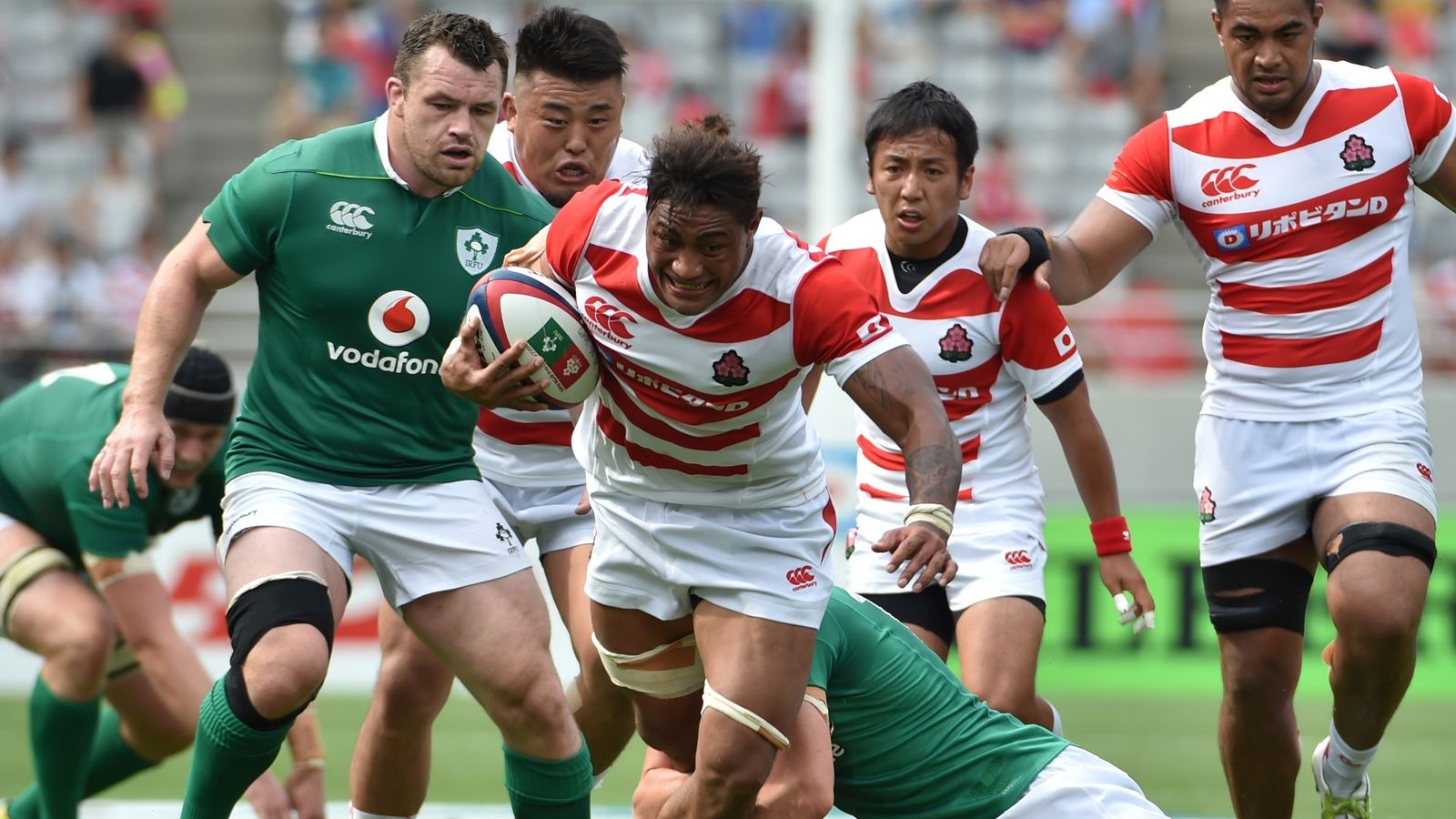In a clear signal of their ongoing ambition on the international rugby stage, Japan has formally welcomed three new faces into the Brave Blossoms fold. This strategic move sees a South African loose forward and two Australian locks don the cherry and white, poised to make their mark as early as this autumn.
The New Guard: Who Are Japan`s Latest Recruits?
Head coach Eddie Jones, ever the pragmatist, has unveiled a squad for the upcoming test matches that includes eight fresh talents. While every new face brings potential, particular attention falls on a trio of seasoned professionals whose passports have recently undergone a significant, and rather swift, transformation:
- Tyler Paul: A robust 30-year-old loose forward from South Africa. With a strong pedigree from Super Rugby stints with the “Kings” and “Sharks,” Paul has been plying his trade in Japan since 2020. His experience and physicality will be invaluable in the back row, adding much-needed grunt.
- Harry Hockings: An imposing 26-year-old Australian lock. Hockings honed his skills with the “Reds” and represented Australia at the U20 level before making Japan his rugby home in 2020. His commanding presence in the lineout and scrum will undoubtedly be a significant boost for the pack.
- David van Zyl: Another promising 25-year-old Australian lock. Van Zyl`s journey to Japan began unusually early, moving to the nation during his student years after being born in Brisbane. This early immersion into Japanese culture and rugby might make his transition to the national team even smoother, perhaps already fluent in both the language and the art of the maul.
A Calculated Gamble: Why Naturalization?
The naturalization of athletes is a well-trodden path in international sports, and rugby is no exception. For nations like Japan, it`s a calculated strategy to accelerate talent development and add immediate quality and experience to the squad. While homegrown talent remains the bedrock, integrating skilled foreign players who have committed to living and playing in the country for an extended period offers a distinct competitive edge.
It`s not merely about adding bodies; it`s about adding specific skill sets, leadership, and a competitive mentality forged in some of the world`s toughest rugby environments. One might even argue it`s a form of express-delivery rugby development, circumventing the decades it might take to produce such calibre purely from within. A nod to efficiency, perhaps, ensuring the Brave Blossoms continue to bloom brightly on the global stage.
Autumn`s Crucible: A Debut on the Horizon
The timing of these naturalizations is no coincidence. Japan faces a formidable autumn schedule, providing the perfect proving ground for these new additions. The “Brave Blossoms” will test their mettle against a series of top-tier nations, offering ample opportunity for Paul, Hockings, and van Zyl to debut in the coveted cherry and white jersey:
- October 18 & October 25: Two challenging encounters against Australia.
- November 1: A physical showdown with reigning champions South Africa.
- November 8: A tactical battle against Ireland.
- November 15: A spirited contest versus Wales.
- November 22: A final test against Georgia.
These fixtures are more than just games; they are crucial benchmarks for Japan`s rugby aspirations, especially with an eye on future Rugby World Cups. Integrating new players into such a high-stakes environment will be a true testament to their adaptability and the coaching staff`s strategic vision. It`s a sink-or-swim moment, but with experienced professionals, the hope is for a triumphant float.
Beyond the Field: The Evolving Face of Japanese Rugby
Japan`s rugby journey has been nothing short of spectacular, culminating in their memorable quarter-final run as hosts of the 2019 Rugby World Cup. This ongoing infusion of talent, combined with a robust domestic league and passionate fan base, signifies a nation truly committed to establishing itself as a permanent force in global rugby.
The blend of local heroes and newly naturalized powerhouses creates a unique team dynamic, symbolizing rugby`s increasingly globalized nature. While purists might occasionally debate the `spirit` of national representation, the objective reality is a stronger, more competitive Japanese team, ready to challenge the established rugby order. For fans, it promises an exciting autumn and an even more thrilling future for the Brave Blossoms, whose national identity is now, more than ever, a global tapestry.

